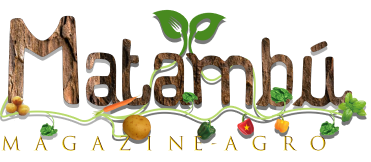[ad_1]
SS Jandu, managing director of Zucchini Greengrocers.
In 2016, How we made it in Africa first interviewed Zucchini Greengrocers, a retailer focusing totally on recent produce. At the time, the corporate operated simply 4 shops in Kenya’s capital Nairobi. Six years on, it has advanced, each by way of its general retail technique and the gadgets supplied. There at the moment are 10 shops unfold throughout town, principally in buying malls.
Managing director SS Jandu, who based the enterprise in 1991, has skilled the evolution and enlargement of Zucchini and the trade on the whole. “Zucchini now has many new products, especially at our flagship stores at ABC Place, General Mathenge and the Village Market [shopping centres]. We have ventured into more wholesome goods in line with our theme of creating a healthy, feel-good concept. We’ve introduced live cooking and fresh juices and salads. We also strive to improve the in-store experience for our consumers. Shoppers can drink fresh juices while watching their favourite salads being made,” he says.
According to Jandu, the general public is more aware of the significance of inexperienced merchandise, with crops like spinach and broccoli having fun with a considerable native market.
As Zucchini’s product vary elevated, the variety of its prospects grew too. The firm now offers with a various clientele. “Some of our stores – like the one on General Mathenge Road – are found in areas that house both residential and commercial buildings. This means our shoppers are a mix of office-going professionals, men and women working from home and housewives. We try to cater for everyone by providing what the different communities consume; for example, we look at what greens are preferred by Kenyans and try to stock them. We have also researched what the Chinese like and stock those as well.”
Zucchini additionally sells recent produce to companies, and restaurant chain Java House was the primary firm it provided. Zucchini’s authentic location was on the ABC Place buying centre and Java was subsequent door. This meant Java didn’t have to inventory giant quantities of recent produce and would purchase simply sufficient for the day. And when Zucchini opened a retailer on the Junction mall, one other Java outlet additionally occurred to be subsequent to it. This relationship has developed over a few years. In addition, the retailer has constantly provided items to eating places, inns, lodges within the Maasai Mara, and safari camps.
Supply chain
As its shopper base grew, Zucchini resolved to be more accountable for its supply chain. “We decided to venture out and directly import items that aren’t grown here, like apples and grapes. We source them directly from our suppliers in South Africa and Egypt, not through middlemen.”
Jandu explains they’re dedicated to creating common, private visits to the farmers that supply them so as to examine the farming habits and strategies in use. “We don’t have dealings with middlemen, instead, we visit the farmers weekly and deal directly with them. We also support them in terms of access to seed supply and technology.” These visits assist construct agency foundations and long-term relationships.

Zucchini Greengrocers specialises in recent produce.
To guarantee reliability and keep away from overreliance on a single supplier, it really works with a number of farmers for every product.
Stock availability points are solved by means of every day, weekly and month-to-month backup plans. Still, guaranteeing reliability and timeliness has proved tough as some merchandise are transported from so far as Lamu. “Supplies need to reach our customers on the day and time they want. So, we are very strict with the farmers who supply us,” provides Jandu.
Just like different grocery retailers, Zucchini confronted acute shortages of agricultural merchandise previously. According to Jandu, that is not the case. “Agriculture has become a huge industry in Kenya and we experience fewer shortages now. Many companies, which used to produce for export, have ventured into the local market. Fortunately, our climate is excellent. The only produce not grown locally are apples and grapes because they require the four seasons. Kenya used to import blueberries from Holland but we discovered the Mount Kenya region is ideal for blueberry farming.”
E-commerce development
Zucchini ventured into e-commerce in recent times and works by means of Jumia, Glovo and UberEats to ship groceries to its purchasers. It additionally makes use of the direct-to-consumer mannequin the place purchasers purchase instantly from the web site. “We are taking e-commerce seriously and we aim to improve our timing, packaging and delivery window. It is vital for us to reach those customers who do not visit our stores.”
Management has had a whole lot of conferences to brainstorm enhance e-commerce penetration. They obtained WhatsApp numbers for every of their shops to serve purchasers who don’t wish to order through the web site. “We are investing heavily in getting the right personnel, technology and logistics managers in place. E-commerce is our next big thing,” Jandu enthuses.
He believes Kenya’s e-commerce panorama has expanded over time as a result of Kenyans rapidly tailored to it. “These days, everything can be delivered. It helps that we have payment methods like M-Pesa. In the UK, you can place an order that may only be delivered the next day but here we are talking about hourly and on-time deliveries.”
The most fascinating pattern Jandu sees is the rise in meals deliveries. “Ordering cooked food online has become extremely popular. It’s no longer click and collect; now, you place an order and the sellers deliver to you.”
Dark kitchens – cooking services with out sit-down eating places hooked up to them – are additionally on the rise, due to a shift instigated by supply apps. “Many food aggregators no longer rely on third parties. They have their own kitchens. Once you order, they prepare the food instead of getting it from restaurants. They are eliminating the middlemen and suppliers and doing it themselves. This is an exciting trend that will become very popular,” he believes.
Related articles
[ad_2]
Source link










